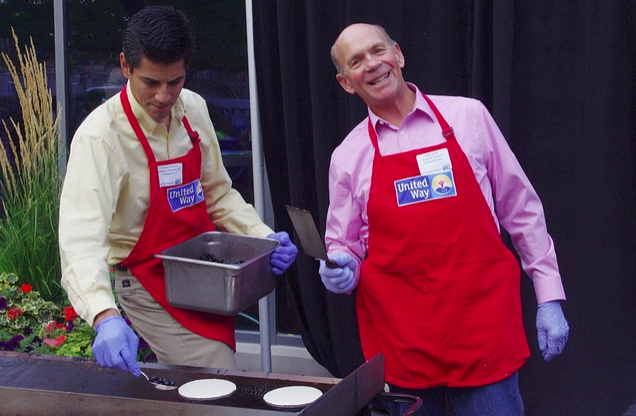Searching for your first job can be a daunting task. We live in a world of endless possibilities, which is great… until it comes time to sift through the infinite opportunities and find the one you want. Even if you find the one, how do you go about getting it?
-
Identify your Passions and Strengths
What are your passions? What were your favorite subjects in school? Questions like these should guide you towards an industry, if not a job idea, that you will genuinely enjoy. For example, if there is a social issue that you are passionate about, research nonprofits and other companies dedicated to that issue.
-
Determine your Transferable Skills
Transferable skills are one of your biggest assets when looking for a job. Did you develop leadership skills as the president of a club or captain of a sports team? Maybe you developed communication skills working a side job in retail or as a tutor when you were in school. Even if you’ve never had a job before, these skills demonstrate how past experiences have prepared you for your desired position. If you’re having trouble thinking of your transferable skills, click here.

-
Construct a Resume and Cover Letter
A strong resume is essential to landing your first job; it is your first impression on a potential employer and best way to showcase your professional experience and qualifications. If you haven’t had much professional experience, you can still build a great resume with your transferable skills and other relevant experiences like volunteer work, club/organization involvement, certifications, and academic achievements. Take great care when creating your resume; there is no room for spelling or grammatical errors. In fact, many employers will discard a resume with errors because it shows a lack of professionalism. For more resources on how to write a strong resume, click here.Your cover letter should explain how you would be a valuable asset to the company and a good fit for the position, which means you need to customize a letter for each application. It shouldn’t focus on your accomplishments–that’s what a resume is for. Learn more about writing a cover letter here.
-
 Develop a Job Search Strategy
Develop a Job Search StrategyJob searching can turn into a job on its own if you let it. Establishing a strategy is the key to keeping your sanity in the process. Set goals to apply to X number of jobs and spend Y amount of time job searching and networking. To establish a more in-depth plan, read Jobspot’s 8 Steps to Beginning Your Job Search.
-
Create a LinkedIn Account
LinkedIn is a professional network. Connect with classmates, potential employers, friends, and family while promoting yourself as a professional. Take a look at our LinkedIn Guide for assistance with setting up your profile.
-
Review your Social Media Profiles
Before you begin applying for jobs, take the time to reassess your online presence; make sure you’re painting a positive picture of yourself. If any questionable content is tied to you, delete it, even if your profiles are set to “private”. A sloppy social media presence could keep you from getting a job.
-
Practice your Pitch
Construct a compelling but concise pitch about why you’re the best candidate for the job. Explain why your particular skills and characteristics make you the most qualified and the best fit for the position.
-
Network
Your network can be your biggest asset in the professional world. You never know where a potential job lead could come from. Attend networking events to help connect with others in your field. Online resources are helpful but don’t underestimate the power of shaking someone’s hand and having a conversation. For tips to build your network, click here.

-
Volunteer
Volunteering is the most beneficial way to get involved in the community. Through this work, you gain new experience, learn new skills, meet new people, and give back to the community all at the same time! If volunteering interests you, check out our Volunteerism page for local opportunities.
-
Work for Experience
Interning and job shadowing while you search are great ways to network and see what’s out there. Remember, your first real job is just a stepping-stone on the path to your future! The job you start with may not be exactly what you want, but that’s okay! It’s an opportunity to gain experience, build professional relationships, and acquire new skills to help you achieve that dream job.